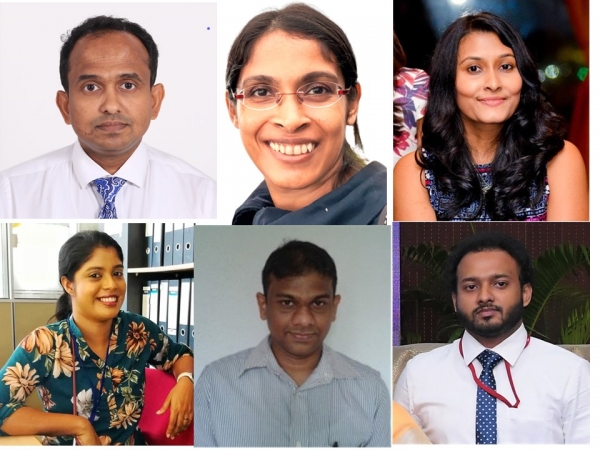Researchers from the University of Jayawardenapura revealed crucial information on the variant of the Corona virus which is currently spreading in Sri Lanka.
In a statement, the University said, “Sri Lanka is currently experiencing a massive outbreak, which originated in Minuwangoda, Gampaha district and is now spreading all over Sri Lanka. The scientists at the Department of Immunology and Molecular Medicine and Allergy, Immunology and Cell Biology Unit of University of Sri Jayewardenepura embarked on carrying out whole genomic sequencing of the virus, to determine to see if the current outbreak is due to spread of different strains, if there are certain mutations that result in the rapid spread of the virus and to investigate the relationship between the current circulating virus strains to previous strains circulating in Sri Lanka.
Key findings of the study are:
The current circulating strain is different to the strains that circulated previously. It has the mutation associated with high transmissibility due to high viral loads. The same virus strain is so far responsible for the infections detected in the Minuwangoda, Colombo Municipality area and the Fish market cluster.
16 virus strains originating from Brandix, Minuwangoda, the Colombo Municipality area, Beruwala fish market and patients admitted to tertiary care hospitals were subjected to sequencing. Whole genomic sequencing was successful in 13 strains and partial sequencing in 3 strains. 12/13 strains were similar to each other and were of the B.1.42 lineage (clade 20C), suggesting that the virus strains circulating in different places in the country, are of a common origin. 15/16 strains had the D614G mutation, which is associated with high viral load and higher rates of transmissibility. The previous strains that circulated in Sri Lanka were of the B.1, B.2, B 1.1 and B.4 lineages (The Kandakadu cluster viruses were of B.1 lineage), and therefore, the current virus strain is slightly different as it belongs to the B.1.42 lineage.
The team of scientists that carried out the sequencing work are Dr. Chandima Jeewandara, Dr. Deshni Jayathilaka, Dr. Dinuka Ariyaratne, Mr. Laksiri Gomes and Mr. Diyanath Ranasinghe led by Prof. Neelika Malavige. Dr. Ananda Wijewickram and Dr. Malika Karunaratne from NIID, provided the initial samples from the Brandix cluster for sequencing. The funding for sequencing was kindly provided by the World Health Organization and we are extremely grateful for the WHO for providing financial assistance for this endeavor and to Mobitel for providing unlimited high-speed internet for this purpose.”










